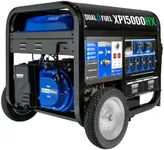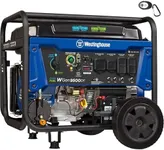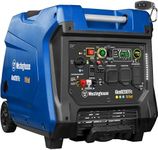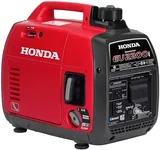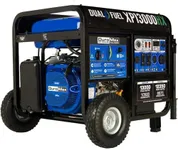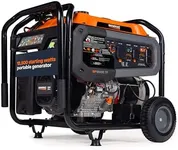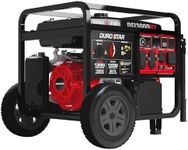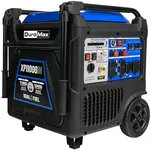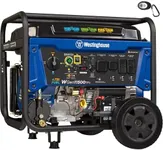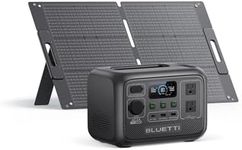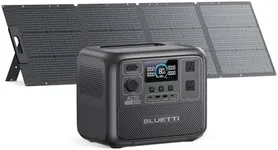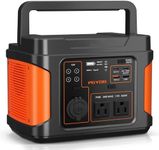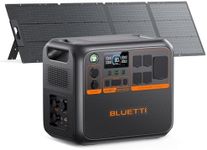Buying Guide for the Best Rv Generators
Choosing the right RV generator is crucial for ensuring you have a reliable power source while on the road. The right generator will provide you with the necessary electricity to run your appliances, charge your devices, and keep your RV comfortable. To make an informed decision, you need to consider several key specifications that will determine the generator's suitability for your needs. Understanding these specs will help you find a generator that matches your power requirements, usage patterns, and preferences.Power Output (Wattage)Power output, measured in watts, indicates how much electricity the generator can produce. This is important because it determines what appliances and devices you can run simultaneously. Generators typically range from 1,000 to 10,000 watts. For light use, such as charging devices and running small appliances, a generator with 1,000 to 2,000 watts may suffice. For moderate use, including running a microwave, TV, and a few other appliances, look for 2,000 to 4,000 watts. For heavy use, such as running an air conditioner and multiple appliances, you may need 4,000 watts or more. Assess your power needs by listing the wattage of all the devices you plan to use and choose a generator that can handle the total load.
Fuel TypeRV generators can run on different types of fuel, including gasoline, propane, and diesel. The fuel type affects the generator's efficiency, cost of operation, and convenience. Gasoline generators are common and easy to refuel but may require more maintenance. Propane generators are cleaner and have a longer shelf life but may be less efficient. Diesel generators are efficient and durable but can be noisier and more expensive. Consider the availability of the fuel type, your RV's existing fuel system, and your preference for maintenance and efficiency when choosing the right fuel type for your generator.
Noise LevelThe noise level of a generator, measured in decibels (dB), is important for ensuring a comfortable and peaceful environment. Generators can range from 50 dB to over 80 dB. A lower noise level is preferable, especially if you plan to use the generator in campgrounds or close to other people. Inverter generators are typically quieter, producing around 50-60 dB, making them suitable for quiet environments. Conventional generators can be louder, often exceeding 70 dB. Consider where and how you will use the generator and choose one with a noise level that won't disturb you or your neighbors.
Run TimeRun time refers to how long a generator can operate on a full tank of fuel. This is important for planning your power usage and refueling needs. Generators with longer run times are more convenient as they require less frequent refueling. Run time can vary based on the generator's load and fuel capacity. For light use, a generator with a run time of 6-8 hours may be sufficient. For extended use, such as overnight or all-day operation, look for generators with run times of 10-12 hours or more. Consider your typical usage patterns and choose a generator that can provide continuous power for the duration you need.
PortabilityPortability is a key factor for RV generators, as you may need to move the generator in and out of storage or transport it to different locations. Portable generators are designed to be lightweight and often come with handles or wheels for easy movement. Smaller generators (1,000-2,000 watts) are generally more portable, weighing around 30-50 pounds. Larger generators (4,000 watts or more) can weigh over 100 pounds and may require wheels for easier transport. Consider how often you will need to move the generator and choose one that you can handle comfortably.
Inverter TechnologyInverter technology allows generators to produce cleaner and more stable power, which is important for sensitive electronics like laptops, smartphones, and medical devices. Inverter generators are typically more fuel-efficient and quieter than conventional generators. They adjust the engine speed based on the power demand, resulting in less noise and better fuel economy. If you plan to power sensitive electronics or prefer a quieter and more efficient generator, an inverter generator is a good choice. However, they tend to be more expensive than conventional generators, so consider your budget and power needs when deciding.

